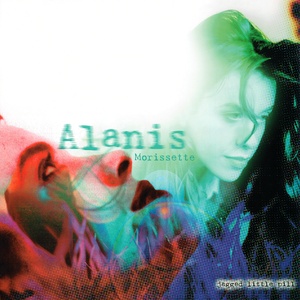Published on Feb 11, 2004
Alanis Morissette plunged into the grunge-infested American
music scene after playing disco-doll up in Canada. The US paid no
notice whatsoever of her before 1995, even after garnering a Juno
for Most Promising Female Artist with her early, dance infused
albums. However, this was no pop-diva who landed on American
shores. Her American debut came at a time of artists of stark
contrast; sugary-sweet LeAnn Rimes on one side of the charts,
Courtney Love on the other. The Squeaky-clean vs. Dirty Grrrls.
What we got from Alanis was a woman who seemed to be somewhere in
the middle, and knew where to draw the line before becoming either
of those extremes. What we also got, was a really pissed-off chick
with a chip on her shoulder.
“You Oughta Know” took the airwaves by force, immediately
shooting up the charts and becoming a sort of anthem for jilted
women. Alanis spares no one from the ugliest, hurtful scenes from
her pain and suffering. She’s happy to forcefully compare herself
to her ex’s new love “An older version of me, is she perverted like
me?” This was no weepy little girl, this chick had stones. She
wasn’t afraid to interject herself uninvited, just to say her
piece, “Did you forget about me, Mr. Duplicity? I hate to bug you
in the middle of dinner.” Frankly, I don’t think she hated doing
that, I think she reveled in it. As hurt as she may have been, she
wasn’t about to curl up and sing “How Do I Live Without You?” —
oh, no. She seems to have focused all her anger and resentment into
a cathartic soundtrack for love gone bad. And she allows millions
of people to share, albeit vicariously, in her psychological
revenge fantasy.
Jagged Little Pill almost seems like an exercise in
self-therapy. Alanis bares her soul, and her personal pains and
triumphs. With a knowing wink and a crooked half grin, she explores
the nature of love and relationships on songs like “Perfect” and
“Not The Doctor”; and the process of healing on “Hand in Pocket”
and “You Learn.” She seems to be describing her own pain and it’s
aftermath in these songs. Telling the listener that’s it’s ok to be
hurt, and at the same time, giving a little glimmer of hope. In
“Head Over Feet,” she describes the antithesis of “You Oughta
Know,” finding herself in love again, despite her own defenses
against it, singing “You’ve already won me over, in spite of
me.”
On this disc Alanis teams up with producer and musician Glen
Ballard, who helps bring out the best qualities of her quirky
voice. Her voice is a bit odd at times, and often seem to be barely
contained at the upper end of her range. Ballard does a nice job of
reigning it in. The end result is very well-balanced, sonically as
well as thematically. The grungy, hard-rocking numbers mix well
with the softer songs. The hurt she shares is juxtaposed against a
mirror of hope, and sometimes, against the unalterable eventuality
of simple fate, as in the eclectic “Ironic.” Her wry, intelligent
lyrics combine with some very catchy musical arrangements to make
for a fine set of memorable songs that bear repeat listening.
